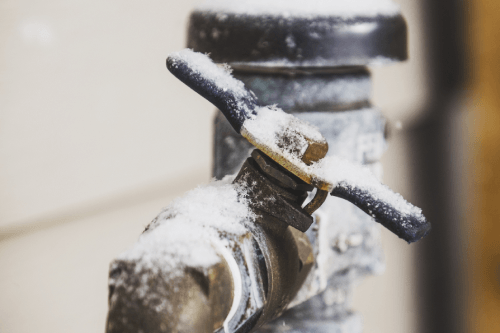Important Tips to Avoid Frozen Pipes in Cold Weather
Important Tips to Avoid Frozen Pipes in Cold Weather
Blog Article
What are your thoughts about Prevent Frozen Pipes ?

Winter can wreak havoc on your plumbing, especially by freezing pipes. Right here's just how to stop it from taking place and what to do if it does.
Intro
As temperature levels decline, the threat of icy pipelines rises, possibly bring about pricey fixings and water damages. Recognizing just how to avoid frozen pipes is crucial for homeowners in cool environments.
Prevention Tips
Insulating at risk pipes
Wrap pipelines in insulation sleeves or utilize heat tape to secure them from freezing temperatures. Concentrate on pipes in unheated or external areas of the home.
Home heating methods
Maintain interior spaces appropriately heated up, specifically areas with pipes. Open cupboard doors to enable cozy air to distribute around pipes under sinks.
Just how to identify frozen pipelines
Try to find decreased water circulation from faucets, uncommon odors or noises from pipelines, and visible frost on revealed pipelines.
Long-Term Solutions
Structural adjustments
Think about rerouting pipelines far from outside wall surfaces or unheated locations. Include added insulation to attic rooms, cellars, and crawl spaces.
Updating insulation
Purchase high-grade insulation for pipelines, attic rooms, and wall surfaces. Appropriate insulation assists preserve consistent temperatures and lowers the threat of icy pipes.
Safeguarding Outdoor Pipes
Garden hose pipes and outdoor taps
Detach and drain yard hose pipes prior to wintertime. Install frost-proof faucets or cover outside taps with protected caps.
Understanding Icy Pipes
What triggers pipes to ice up?
Pipelines freeze when revealed to temperatures listed below 32 ° F (0 ° C) for extended durations. As water inside the pipelines freezes, it broadens, taxing the pipe walls and possibly creating them to burst.
Dangers and damages
Frozen pipes can cause supply of water interruptions, building damage, and costly repair services. Burst pipelines can flood homes and trigger comprehensive architectural damages.
Indications of Frozen Pipeline
Identifying frozen pipelines early can stop them from rupturing.
What to Do If Your Pipelines Freeze
Immediate activities to take
If you believe frozen pipes, maintain taps available to eliminate stress as the ice melts. Use a hairdryer or towels taken in hot water to thaw pipes gradually.
Final thought
Avoiding frozen pipelines requires aggressive procedures and quick feedbacks. By comprehending the causes, indications, and preventive measures, house owners can safeguard their pipes during cold weather.
5 Ways to Prevent Frozen Pipes
Drain Outdoor Faucets and Disconnect Hoses
First, close the shut-off valve that controls the flow of water in the pipe to your outdoor faucet. Then, head outside to disconnect and drain your hose and open the outdoor faucet to allow the water to completely drain out of the line. Turn off the faucet when done. Finally, head back to the shut-off valve and drain the remaining water inside the pipe into a bucket or container. Additionally, if you have a home irrigation system, you should consider hiring an expert to clear the system of water each year.
Insulate Pipes
One of the best and most cost-effective methods for preventing frozen water pipes is to wrap your pipes with insulation. This is especially important for areas in your home that aren’t exposed to heat, such as an attic. We suggest using foam sleeves, which can typically be found at your local hardware store.
Keep Heat Running at 65
Your pipes are located inside your walls, and the temperature there is much colder than the rest of the house. To prevent your pipes from freezing, The Insurance Information Institute suggests that you keep your home heated to at least 65 degrees, even when traveling. You may want to invest in smart devices that can keep an eye on the temperature in your home while you’re away.
Leave Water Dripping
Moving water — even a small trickle — can prevent ice from forming inside your pipes. When freezing temps are imminent, start a drip of water from all faucets that serve exposed pipes. Leaving a few faucets running will also help relieve pressure inside the pipes and help prevent a rupture if the water inside freezes.
Open Cupboard Doors
Warm your kitchen and bathroom pipes by opening cupboards and vanities. You should also leave your interior doors ajar to help warm air circulate evenly throughout your home.

Do you like reading about Prevent Frozen Pipes ? Create feedback further down. We would be glad to find out your opinion about this content. We hope that you come back again in the near future. For those who liked our blog posting plz don't forget to share it. Thank you so much for your time invested reading it.
Go Services Report this page